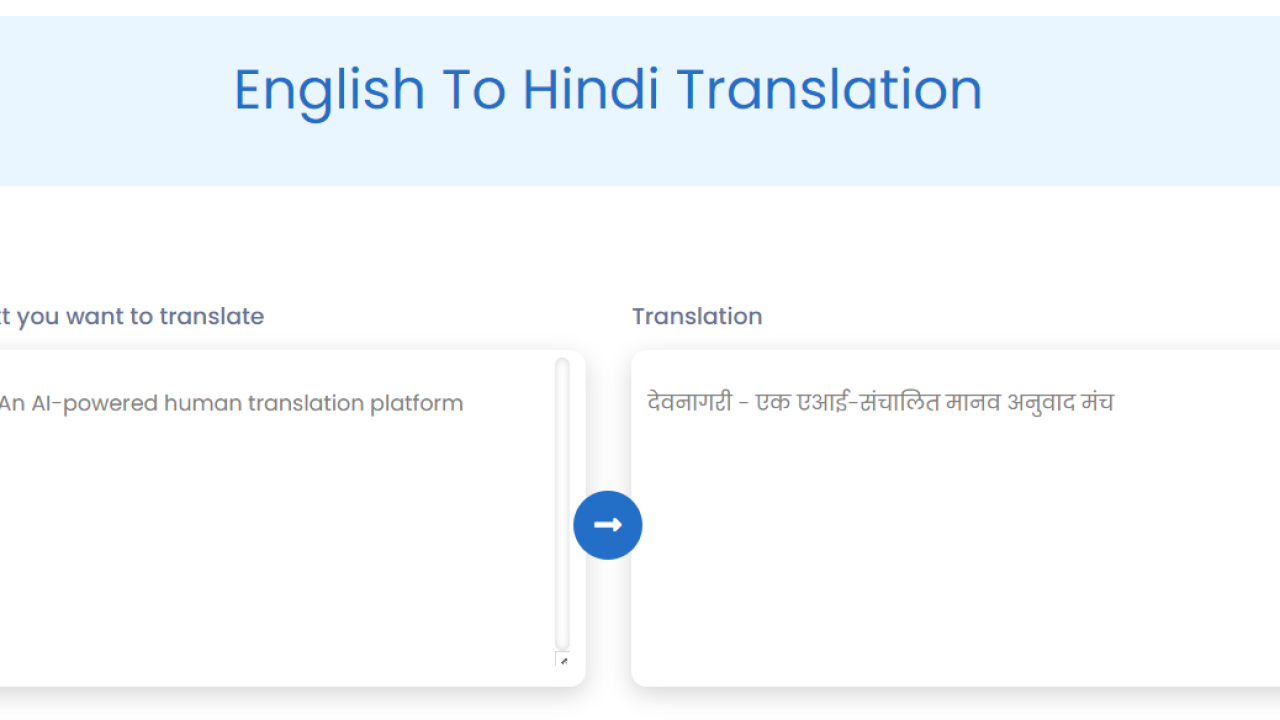Eight steps to ensure accurate eLearning translation
Posted on 24 August, 2022 by Devnagri

The eLearning space has expanded and skyrocketed after the emergence of coronavirus in 2020. But the demand for eLearning translation has also become inevitable. Whether it’s for self-learning or to enhance an individual’s skills, e-learning translation is the solution and going to rise in the coming years. Hence, companies and organizations have all adapted translation in their learning business.
India is the home to most Hindi speakers. Besides being the official language of India, Hindi is also spoken in various countries, such as the US, Canada, the UK, and more. Since Hindi is one of the top 4 languages spoken all around the globe, every company considers English to Hindi translation as an essential language to get their eLearning material translated.
The eLearning translation process differs from traditional educational translation solutions..
In this blog, we are going to focus on what businesses should know about eLearning translation.
Know the target audience:
Understanding your target audience is the first step in successful English to Hindi translation. Know what the population wants and needs to learn. Consider foreign markets, messaging, and branding. Decide where the translated content will get delivered and how it will be consumed. Are the learners going to read the content? Or listen to it? Or is it going to be a live class?
Prepare the content:
Read the content and review the translation after relevant research. Follow these guidelines
- Avoid too many idioms and colloquialisms
- Avoid redundancy
- Ensure that the translated material is simple and easy to use
Create a glossary and style guide:
The glossary will provide a list that the linguist must follow for consistency, which helps to build trust and credibility in your brand.
The style guide explains linguistic information, tone, and style that should exist throughout the translated material.
Consider visuals:
Visuals are a crucial aspect of eLearning. Consider how to incorporate visuals into your English to Hindi translation.
Translate the content:
Use professional native linguists to translate different eLearning materials, including audio, video, or audio-visual translation. Using native lingo in your translated materials ensures your audience can understand the eLearning courses you offer.
Review the content:
It is time to review the translated content.
The feedback is recorded and results in an overall quality score for the translator. The expected score is a 99.8% quality rating against errors like typos, omissions, grammar, and meaning edits.
Quality control and delivery:
Here, the translated content is submitted for quality checks to verify if all the project instructions were completed, comments are reviewed and reconciled, and the glossary and style guide was followed.
Delivery:
The final delivery will be gathered and verified whether it meets your translation standards. The delivery is then facilitated based on the agreed convention and archived.
Conclusion:
The eLearning translation is difficult. Working with professionals allows you to take away a large portion of work and administrative tasks. Make sure to research and avail the best-reputed company to get your English to Hindi translation accurate and localized.
Source: https://www.apsense.com/article/eight-steps-to-ensure-accurate-elearning-translation.html